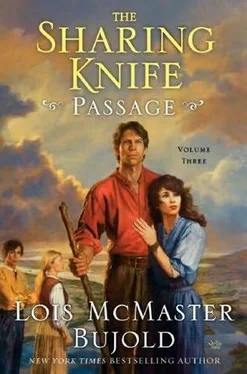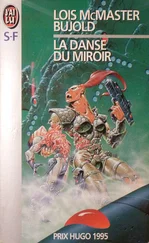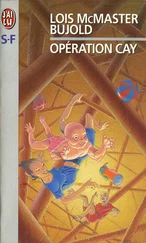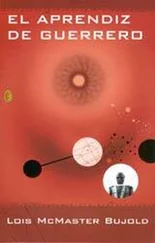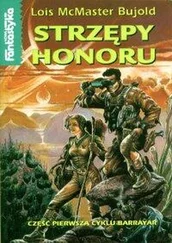“I must have shelled ten thousand peas, but it kept me from going stir-crazy.”
“You were so pale, at first!” agreed Sal. “I think my cookin’ helped put those roses back in your cheeks.” She patted one, leaving a smudge of flour.
“I think it did, too,” said Fawn, brushing at the flour and smiling.
“That ’n Dag.”
Sal’s smile thinned a bit, and she glanced appraisingly at Whit. “So that patroller fellow with the missin’ hand must have got you home all right, after all.”
Fawn nodded.
“We weren’t too sure on him,” Sal admitted. “Some of us was afraid he’d gone and beguiled you, like they say Lakewalkers can. Though it’s true the ones we get here are usually pretty well-behaved. How they carry on with each other being not our business.”
Fawn raised her chin. “If there was any beguiling going on, I’d say it was mutual. We married each other.”
“He never!” said Sal in astonishment.
Fawn gestured at her brother. “Whit stood witness.”
“Yep,” said Whit. “They said their promises in the parlor in West Blue in front of the whole family, and signed the family book, and everything.”
“Oh, honey…” Sal hesitated, looking troubled. “He was a right disturbin’ fellow, the way all patrollers are, though it was plain he’d took a shine to you, but…I thought better o’ him than that. Don’t you two know that Lakewalkers don’t recognize marriages to us folks? I’m afraid he was pulling the wool over your eyes, and your family’s, too.”
“No, he didn’t,” said Fawn. “We were married Lakewalker-style at the same time—we wove and swapped our binding strings as sound as any Lakewalker couple ever did. See?” She held out her left wrist, wrapped in the dark braid, and wriggled it to let the gold beads on the cord-ends bounce and glimmer, showing it off for the third or fourth time in this evening’s rounds.
“Is that what those are?” said Sal doubtfully. “I’ve seen them hair bracelets on some of the patrollers here, time and time.”
“Wedding cords, yes.”
Whit said, “It’s like they got married twice over. I don’t think Dag was taking any chances by that time. I will say, when he ties a knot, it stays tied.”
Sal’s eyes grew as round as her mouth. “And his people accepted it?”
Fawn tossed her head. “I won’t claim his kin were all happy, but they didn’t say we weren’t married.”
“Well, I never!”
The serving boys bounced in, the scullions called, and Sal had to set aside her fascinated pursuit of this gossip in favor of getting supper ready. She shooed her guests out of her kitchen with visible regret.
In the corridor to the dining room, Whit paused in puzzlement. “Fawn…”
“Hm?”
“Dag’s kin did accept those cords of yours, right? They didn’t claim you were just, um…running around together, right?”
Fawn lowered her voice. “In truth, there were four or five opinions on that. Some took ’em for true, some accused us of trickery, and some didn’t care nohow about the cords, they wanted to deny us any-road. They weren’t just arguing with Dag, mind; they were arguing with each other as well. We kind of set the cat amongst the pigeons with those cords. When we left, I expect it took the urgency out of the debate.” Truly, Dag hadn’t wanted to force a decision, lest it become a quick and simplifying no.
“These rules of theirs—do they make them camp by camp, or everywhere at once?”
“Camp by camp, but the camps stay in touch with one another. Couriers carry patrol reports, plus letters between the camp councils. And folks’ personal letters. And lots of gossip, Dag says. Young patrollers exchange between camps to train up, and parties travel with trade goods. And folks go on visits to kin, sometimes. So news has ways of getting around. Lakewalkers don’t let themselves get cut off from each other.” She frowned. “I do wonder how Dag will go on, away from his people. That’s not natural, for a Lakewalker. They made us both plenty mad, but…I do wonder.”
“Huh,” said Whit.
Whit must have made a good impression on Sal, because the portions soon set before the three of them at the dinner table were generous. After they had all pretty much foundered on the glut, Whit went off to the kitchen to compliment her. He came back full of a scheme to go reconnoiter Glassforge after dark, which Dag—Fawn was grateful to see—had the sense to discourage.
“It’s been a long day,” Fawn seconded. “Dag’s still recovering, you know.” Dag smiled at her from lidded eyes that looked anything but sleepy, dark and a bit glittery, and she dimpled back at him.
“Oh, yeah,” said Whit vaguely. “And you weren’t doing too well yourself, earlier. Tomorrow, then.” He contented himself with going off to visit the horses and maybe chat with the hotel stable’s horse boys.
Fawn and Dag went straight to bed, but not to sleep. Where Fawn made the astonishing and delightful discovery that Dag’s ghost hand was starting to come back, at least enough to do a few blissful, blushful things with. Fawn’s opinion of the medicine maker who had predicted such a recovery went up several notches. They did hear Whit come in, mainly because he knocked on the wall and bade them good night. Fawn smothered a giggle as Dag raised his head and drawled back similar good wishes—very blandly, considering his position just then.
The next morning after breakfast the three of them strolled to the town center, where a street off the market square led down to the little river that flowed past Glassforge toward the Grace. Tributary creeks behind dams fed several mill wheels, though at the moment the dry weather, a boon to harvesters and road travelers all over Oleana, had left the water so low in the main stream that only lightly loaded skiffs and narrow boats could take away the handiwork of the town’s artisans. The autumn air was acrid from the wood smoke and coal smoke rising from a forge, a couple of iron furnaces, a wagon-wright’s, a big smithy, a pottery yard, and, of course, the town’s celebrated glass-makers.
At one of these, as Fawn had hoped, they found Sassa Clay, one of her best friends from the summer’s misadventures with the malice. Red-haired Sassa seemed equally delighted to see them, and pleased to meet Whit. He had a refreshing masculine disinterest in marriage customs of any kind, but was very keen on glass and local trade, proudly leading a tour of his glassworks for the new audience. Sassa was not much older than Whit, and the two young men hit it off so well Fawn had no guilt about leaving them to each other’s company after lunch and retiring with Dag back to the hotel for—he said—a nap. It wasn’t a lie; she was sure a nap would ensue eventually.
She became concerned when Whit did not show up at the hotel for dinner, but Dag sensibly pointed out that Sassa knew perfectly well how to find them here if there were any emergencies to report, and Fawn relaxed. She wondered if she might parlay their two planned nights of rest here into three, but Dag was of the opinion that the dry spell couldn’t last much longer, and truly, the night’s chill breathed of the coming change.
Whit returned so late, they were actually sleeping. Fawn woke muzzily in the dark to hear him clumping around on attempted tiptoe, and the creak of his bed as he climbed into it. She cuddled back into the warmth of Dag’s grip, reassured.
She was less reassured when she went out to the stable in the frosty dawn to tell the horse boys to have Warp and Weft ready after breakfast—Dag would saddle Copperhead himself—only to find the team gone. And so, she discovered when she checked his room, was Whit. She muffled her panic when she spotted his saddlebags still in a heap by his bed. Descending the staircase wondering whether to drag out Dag and his groundsense for a search, she met Whit breezing back in through the hotel’s stable-yard door.
Читать дальше
